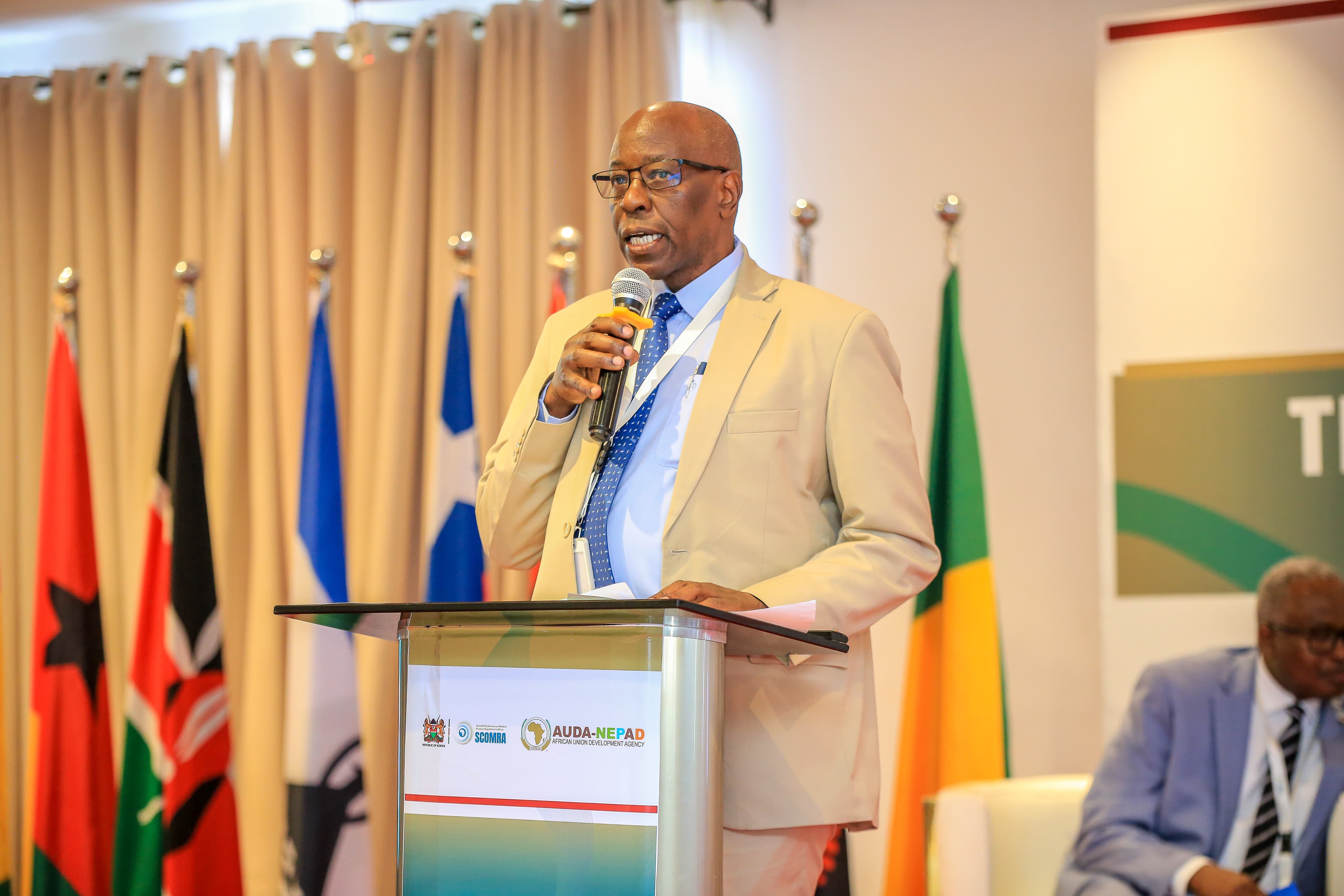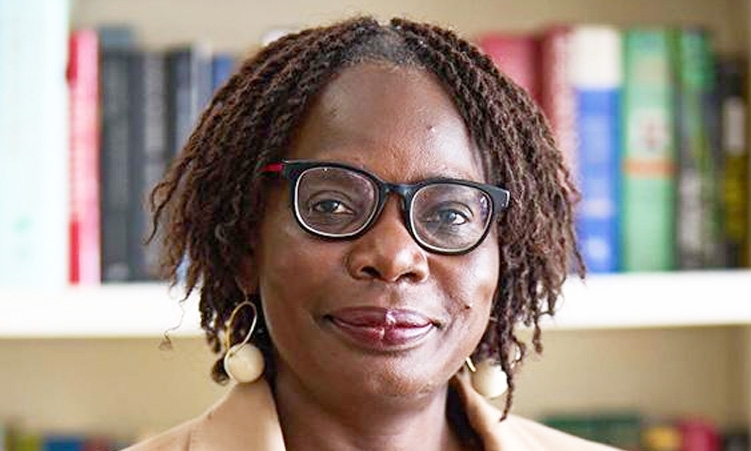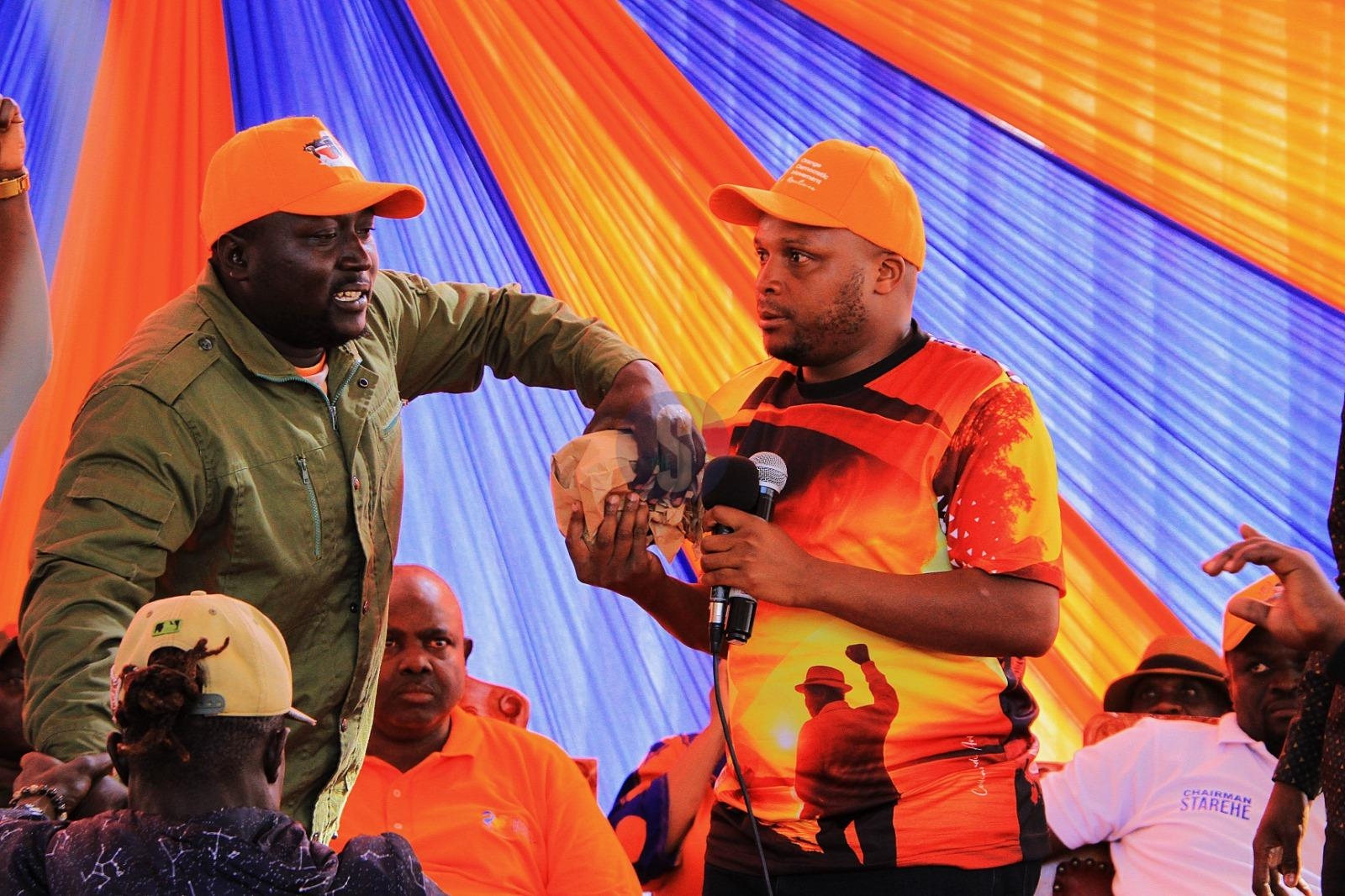
 PPB chair John Munyu in Mombasa on Tuesday / JOHN
CHESOLI
PPB chair John Munyu in Mombasa on Tuesday / JOHN
CHESOLI
The government has intensified its crackdown on counterfeit
medicines despite persistent challenges posed by porous borders and gaps in
regulation.
Pharmacy and Poisons Board chairman John Munyu said Kenya has robust regulatory systems and structures in place to combat contraband drugs.
“We have enhanced our enforcement systems and I can assure you the war on counterweights is a war that we are winning. We’re at the very tail end,” he said.
He spoke during the 7th Biennial Scientific Conference on Medical Products Regulation in Africa (SCoMRA VII) in Mombasa.
Munyu’s sentiments come days after the government nabbed a 40-foot container carrying 9.5 million illicit cigarettes disguised as sanitary towels valued at Sh200 million at the Mombasa port.
The illicit cigarettes would have potentially cost the government Sh76 million in revenue losses.
Munyu said so robust is Kenya’s counterfeit fight that the regional African Medicines Agency requested the services of three of Kenya’s experts to help tighten the continent’s regulatory framework and combat counterfeit drugs.
The three experts will play a pivotal role in aligning Africa’s diverse national regulatory systems to ensure safety, quality and efficacy of medical products traded within the continent.
“We, as a country, are actively participating, with Africa Medicines Agency, in ensuring a better and safe continent. Three of senior officers in the PPB are committee members driving the harmonisation and collaboration of our regional regulatory framework,” he said.
Munyu said collaboration and harmonisation of medical product registration across African nations is long overdue, with Kenya taking a central role in ensuring the success of this initiative for safer health policies.
He, however, said loopholes in regulations and porous borders are affecting the fight to have a safer continent.
“It’s a battle that we are fighting because our responsibility is to ensure public safety, safe health delivery and ensure Kenyans’ health is safe. We have no option,” Munyu said.
Munyu said the three experts have been appointed to senior roles at the AMA, the newly established Pan-African body mandated to oversee harmonisation of medical product regulations across the continent.
Headquartered in Kigali, Rwanda, the AMA was created to coordinate and strengthen regulatory systems across all 55 African Union member states.
It seeks to eliminate the circulation of counterfeit and substandard medical products, a persistent challenge undermining public health and local pharmaceutical manufacturing.
PPB says deployment of the experts reflects the country’s consistent contribution to regional harmonisation initiatives under the African Medicines Regulatory Harmonisation (AMRH) programme.
AMA director general Delese Darko said the conference serves as the continent’s leading forum for evidence-based dialogue, partnership building and policy alignment in medical product regulation.
Scomra VII seeks to deepen collaboration to advance regulatory harmonisation, stimulate local manufacturing and strengthen Africa’s ability to produce safe, quality-assured medicines and vaccines.
“Scomra is more than a conference because it is a collective commitment to Africa’s health independence. By harmonising regulation and building local capacity, we are unlocking the continent’s potential to produce its own life-saving medicines and vaccines,” Auda-Nepad CEO Nardos Bekele-Thomas said.
Since its inception, Scomra has been central to the AMRH programme, which supports AU member states in building efficient, convergent regulatory systems.














